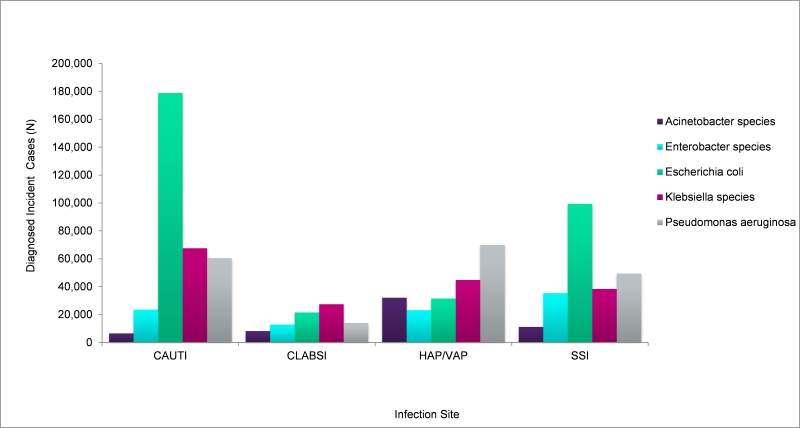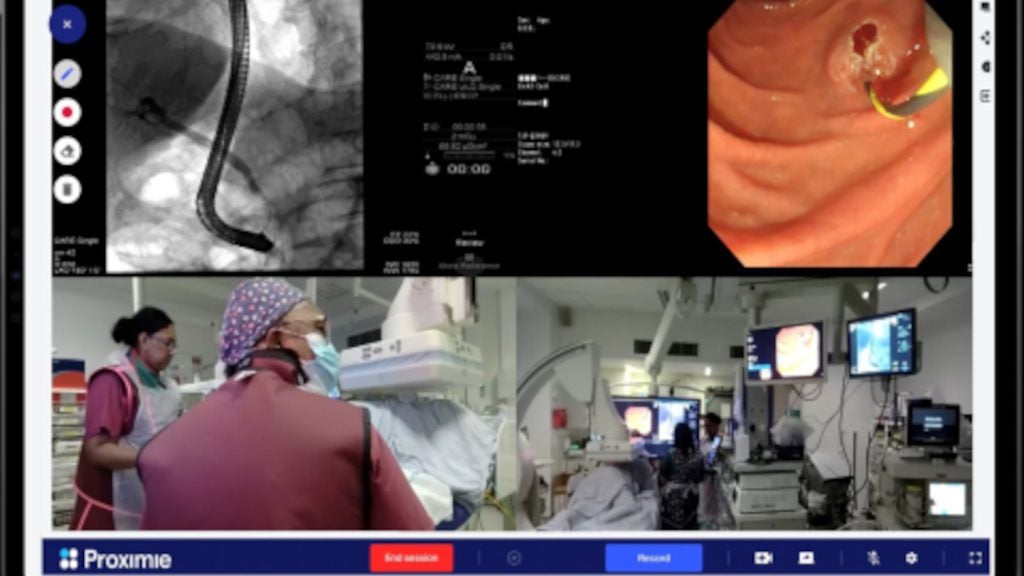
Healthcare-associated infections (HAIs) are a major threat to patient safety, and place a substantial economic burden on healthcare systems. HAIs occur in hospitalised patients, and are not present at the time of admission. The most common types of HAIs are related to the use of invasive devices or surgical procedures, and fall into the following infection site categories: catheter-associated urinary tract infection (CAUTI), central line-associated bloodstream infection (CLABSI), hospital-associated pneumonia/ventilator-associated pneumonia (HAP/VAP), and surgical site infection (SSI). Infections caused by Gram-negative bacteria are of particular public health concern, since they are at the root of approximately 30–70% of HAIs across the globe.
GlobalData epidemiologists reviewed the five major causative pathogens (Acinetobacter species, Enterobacter species, Escherichia coli, Klebsiella species, and Pseudomonas aeruginosa) in diagnosed Gram-negative HAIs by infection site, and it is clear that the pathogens responsible for the greatest number of Gram-negative HAIs highly depend on the infection site.
Figure 1: 7MM, Infection Site-Specific Diagnosed Incident Cases of Healthcare-Associated Gram-Negative Infections by Causative Pathogen, Men and Women, Ages ≥18 Years, 2016

Source: GlobalData. 7MM = US, France, Germany, Italy, Spain, UK, Japan
In the seven major pharmaceutical markets combined (7MM: US, France, Germany, Italy, Spain, UK, Japan) in 2016, GlobalData epidemiologists found that E. coli causes the highest number of CAUTI; Klebsiella species cause the highest number of CLABSI; P. aeruginosa causes the highest number of HAP/VAP; and E. coli causes the highest number of SSI (as shown in Figure 1).
How well do you really know your competitors?
Access the most comprehensive Company Profiles on the market, powered by GlobalData. Save hours of research. Gain competitive edge.

Thank you!
Your download email will arrive shortly
Not ready to buy yet? Download a free sample
We are confident about the unique quality of our Company Profiles. However, we want you to make the most beneficial decision for your business, so we offer a free sample that you can download by submitting the below form
By GlobalDataWhat is the significance of this? Physicians can use this data to make rapid and informed decisions about patient treatment, especially when it may take a considerable amount of time to test for, isolate, and identify the causative pathogen. Continued pathogen monitoring will help infection control staff to better focus their efforts on preventing specific HAIs, which are likely to be Gram-negative, and which may persist and spread in the absence of tailored infection control measures.
Related reports
GlobalData (2017). EpiCast: Healthcare-Associated Gram-Negative Infections – Epidemiology Forecast to 2026, GDHCER157-17.







